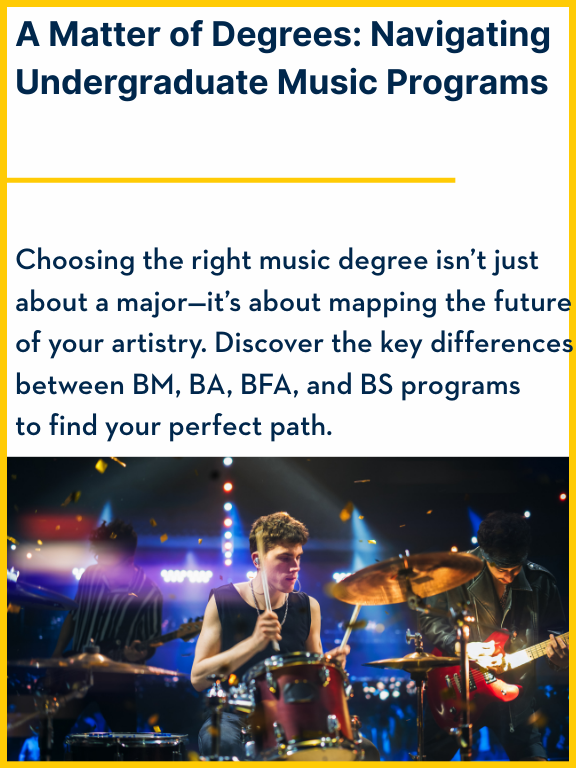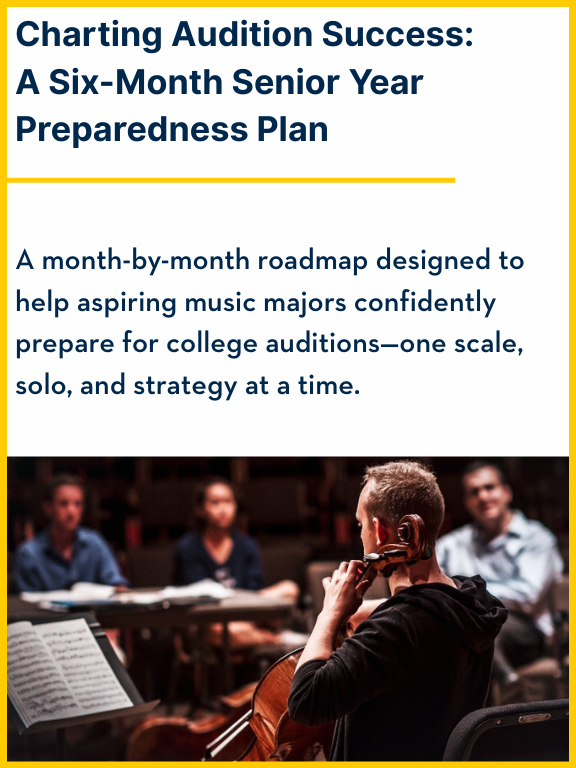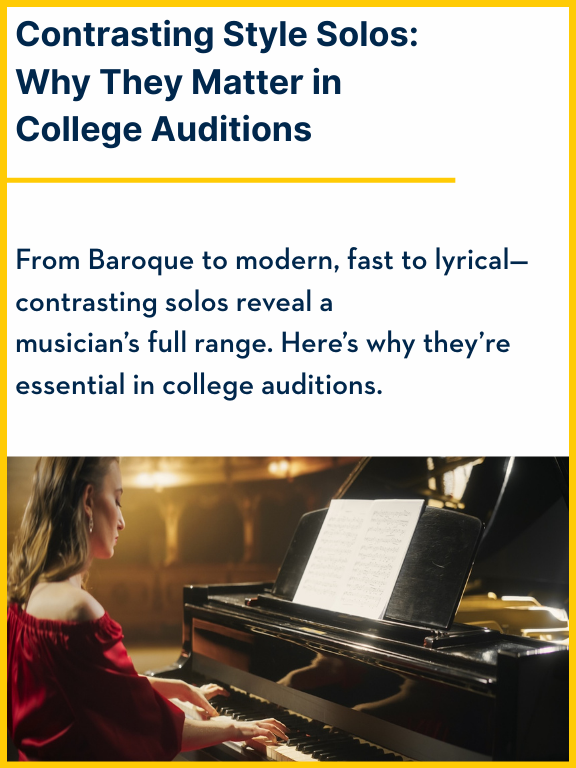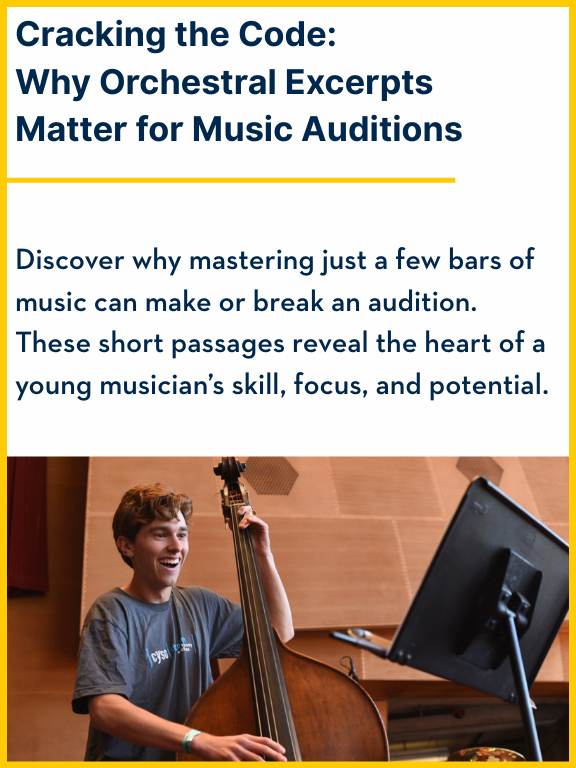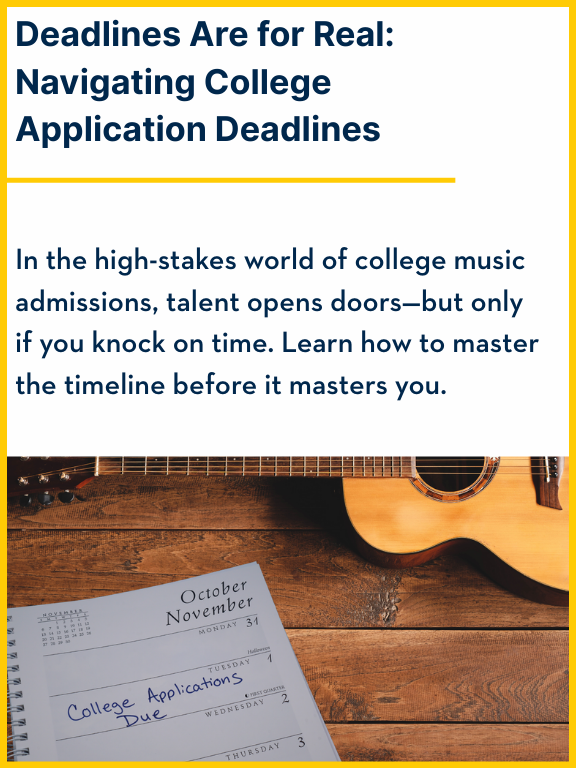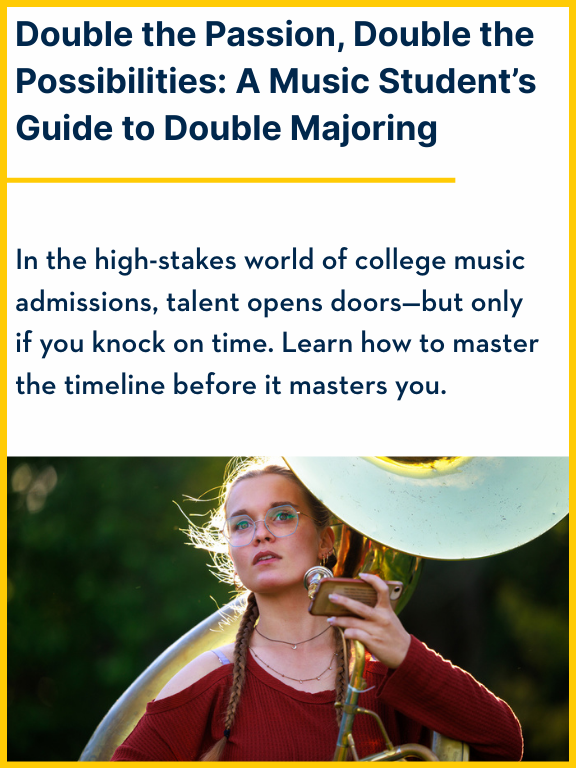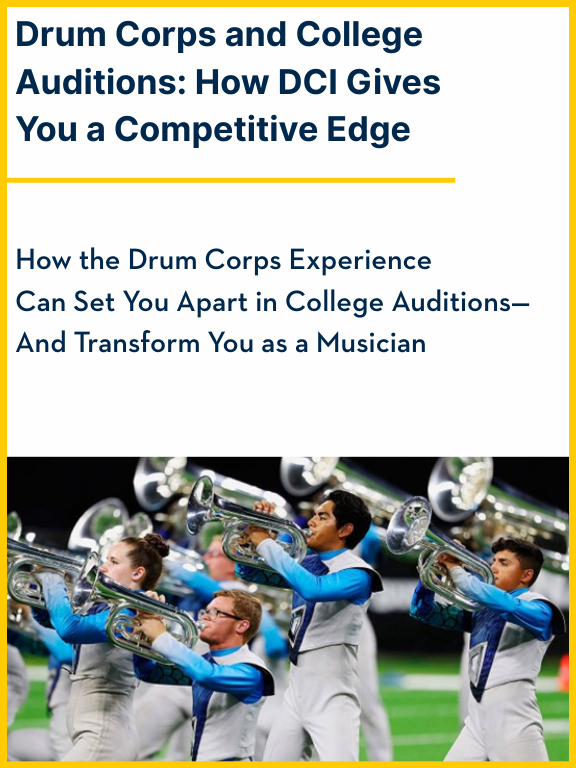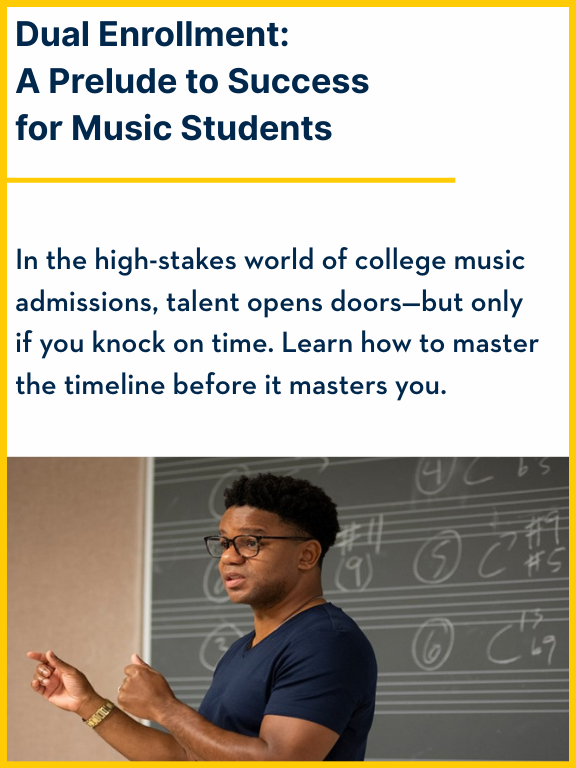×
Glossary
Academic Advisor: A college or university staff member who helps students choose classes, plan their academic path, and stay on track for graduation.
Bachelor of Arts (BA): A general undergraduate degree that often includes liberal arts subjects; can include music alongside other non-music majors.
Bachelor of Music (BM): A specialized undergraduate degree focusing on intensive music training and performance.
Conservatory: A college or school within a university dedicated to rigorous music training, often with auditions required for admission.
Credit Hour: A unit measuring the amount of classroom time per week for a course. College degrees require a certain number of credit hours to complete.
Curriculum: The structured set of courses a student must take to complete a degree or major.
Degree Program: A structured course of study at a college or university leading to a diploma in a specific field.
Double Major: A college path where a student completes the requirements for two majors under one degree (e.g., Music and Psychology under a BA).
Dual Degree: A college path where a student earns two separate degrees—often from different schools—such as a BM in Music and a BS in Business.
Elective: A class a student chooses freely, outside of required courses, which can reflect personal interests or support a second major.
General Education Requirements (Gen Eds): Foundational college courses in subjects like math, writing, and science that all students must take, regardless of major.
Interdisciplinary: Combining two or more fields of study—like music and business—to develop a broader skill set.
Liberal Arts: A college education approach that includes a wide range of subjects, including humanities, social sciences, and natural sciences.
Major: The main subject area a student chooses to specialize in during college (e.g., Music, Psychology, Engineering).
Mallets: Stick-like tools with padded ends used to play percussion instruments such as marimbas, vibraphones, or timpani.
Marquee: A sign over the entrance of a theater that displays the names of the performers or productions—used metaphorically in the article to mean public recognition or ownership of a performer’s name.
Masterclass: Special class taught by experts in a field, allowing students to learn advanced techniques or skills.
Minor: A secondary subject a student studies in addition to their major, requiring fewer courses.
Performance Track: A music degree path focused on mastering an instrument or voice, often leading to careers in performing or private teaching.
Scholarship: Financial aid awarded to students based on merit, talent (such as musical ability), or need, which does not have to be repaid.
Semester: One half of the academic year, usually lasting 15–18 weeks, during which students take multiple classes.
Time Management: The ability to plan and balance school, rehearsals, practice, and personal life—a crucial skill for double majors and dual degree students.

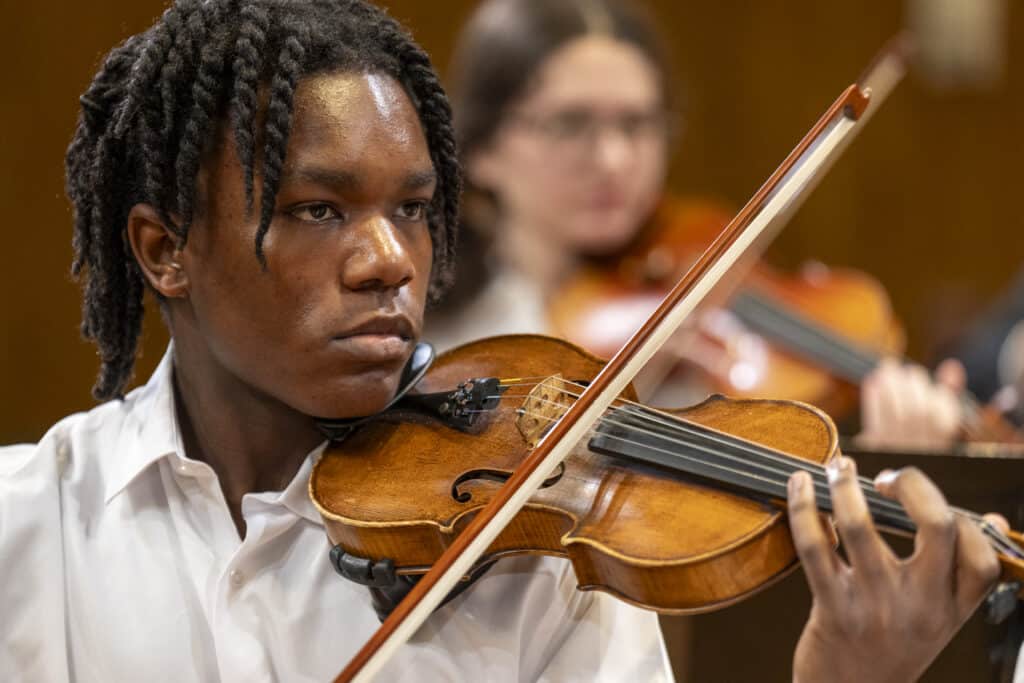
.png) ARTICLE GLOSSARY
ARTICLE GLOSSARY

